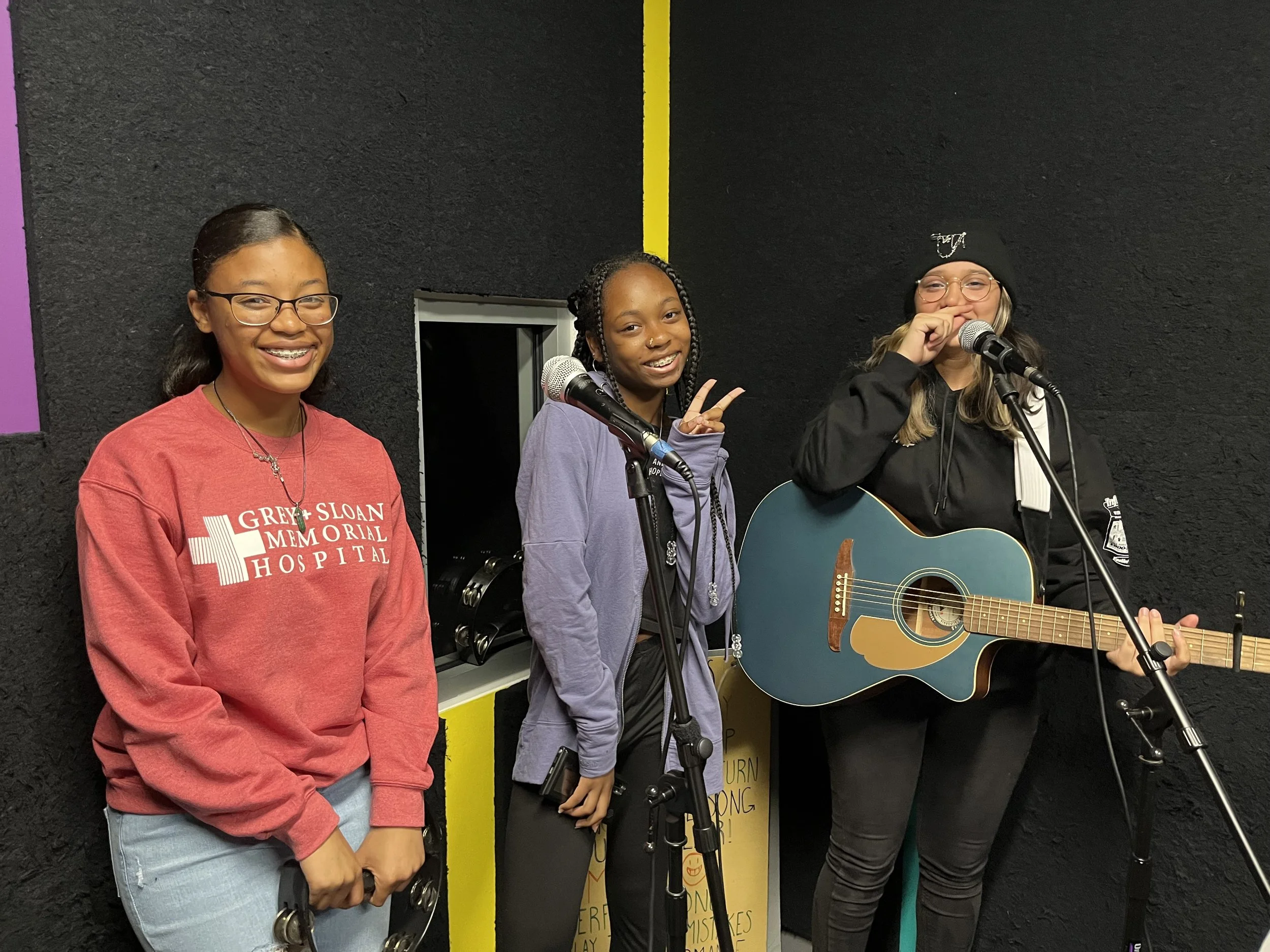What does UpBeat’s impact look like?
In 2021, UpBeat served over 231 students!
😊😊😊😊😊😊😊😊😊😊😊😊😊😊😊😊😊😊😊😊😊😊😊😊😊😊😊😊😊😊😊😊😊😊😊😊😊😊😊😊😊😊😊😊😊😊😊😊😊😊😊😊😊😊😊😊😊😊😊😊😊😊😊😊😊😊😊😊😊😊😊😊😊😊😊😊😊😊😊😊😊😊😊😊😊😊😊😊😊😊😊😊😊😊😊😊😊😊😊😊😊😊😊😊😊😊😊😊😊😊😊😊😊😊😊😊😊😊😊😊😊😊😊😊😊😊😊😊😊😊😊😊😊😊😊😊😊😊😊😊😊😊😊😊😊😊😊😊😊😊😊😊😊😊😊😊😊😊😊😊😊😊😊😊😊😊😊😊😊😊😊😊😊😊😊😊😊😊😊😊😊😊😊😊😊😊😊😊😊😊😊😊😊😊😊😊😊😊😊😊😊😊😊😊😊😊😊😊😊😊😊😊😊😊😊😊😊😊😊😊😊😊😊😊😊😊😊😊😊😊😊
Of those people, nearly 100 people received scholarships in the last year.
🎓🎓🎓🎓🎓🎓🎓🎓🎓🎓🎓🎓🎓🎓🎓🎓🎓🎓🎓🎓🎓🎓🎓🎓🎓🎓🎓🎓🎓🎓🎓🎓🎓🎓🎓🎓🎓🎓🎓🎓🎓🎓🎓🎓🎓🎓🎓🎓🎓🎓🎓🎓🎓🎓🎓🎓🎓🎓🎓🎓🎓🎓🎓🎓🎓🎓🎓🎓🎓🎓🎓🎓🎓🎓🎓🎓🎓🎓🎓🎓🎓🎓🎓🎓🎓🎓🎓🎓🎓🎓🎓🎓
In the last session, there were 106 piano students…
🎹🎹🎹🎹🎹🎹🎹🎹🎹🎹🎹🎹🎹🎹🎹🎹🎹🎹🎹🎹🎹🎹🎹🎹🎹🎹🎹🎹🎹🎹🎹🎹🎹🎹🎹🎹🎹🎹🎹🎹🎹🎹🎹🎹🎹🎹🎹🎹🎹🎹🎹🎹🎹🎹🎹🎹🎹🎹🎹🎹🎹🎹🎹🎹🎹🎹🎹🎹🎹🎹🎹🎹🎹🎹🎹🎹🎹🎹🎹🎹🎹🎹🎹🎹🎹🎹🎹🎹🎹🎹🎹🎹🎹🎹🎹🎹🎹🎹🎹🎹🎹🎹🎹🎹🎹🎹
…39 vocal students…
🎤🎤🎤🎤🎤🎤🎤🎤🎤🎤🎤🎤🎤🎤🎤🎤🎤🎤🎤🎤🎤🎤🎤🎤🎤🎤🎤🎤🎤🎤🎤🎤🎤🎤🎤🎤🎤🎤🎤
…27 guitar students…
🎸🎸🎸🎸🎸🎸🎸🎸🎸🎸🎸🎸🎸🎸🎸🎸🎸🎸🎸🎸🎸🎸🎸🎸🎸🎸🎸
….and 38 strings, drums, and saxophone students!
🎻🥁🎷🎻🥁🎷🎻🥁🎷🎻🥁🎷🎻🥁🎷🎻🥁🎷🎻🥁🎷🎻🥁🎷🎻🥁🎷🎻🥁🎷🎻🥁🎷🎻🥁🎷🎻🥁
Between all of these people, UpBeat students performed over 1200 times through concerts, showcases, and progress performances!
🎤🎹🎼🥁🎵🎷🎸🎧🎻🎶🎤🎹🎼🥁🎵🎷🎸🎧🎻🎶🎤🎹🎼🥁🎵🎷🎸🎧🎻🎶🎤🎹🎼🥁🎵🎷🎸🎧🎻🎶🎤🎹🎼🥁🎵🎷🎸🎧🎻🎶🎤🎹🎼🥁🎵🎷🎸🎧🎻🎶🎤🎹🎼🥁🎵🎷🎸🎧🎻🎶🎤🎹🎼🥁🎵🎷🎸🎧🎻🎶🎤🎹🎼🥁🎵🎷🎸🎧🎻🎶🎤🎹🎼🥁🎵🎷🎸🎧🎻🎶🎤🎹🎼🥁🎵🎷🎸🎧🎻🎶🎤🎹🎼🥁🎵🎷🎸🎧🎻🎶🎤🎹🎼🥁🎵🎷🎸🎧🎻🎶🎤🎹🎼🥁🎵🎷🎸🎧🎻🎶🎤🎹🎼🥁🎵🎷🎸🎧🎻🎶🎤🎹🎼🥁🎵🎷🎸🎧🎻🎶🎤🎹🎼🥁🎵🎷🎸🎧🎻🎶🎤🎹🎼🥁🎵🎷🎸🎧🎻🎶🎤🎹🎼🥁🎵🎷🎸🎧🎻🎶🎤🎹🎼🥁🎵🎷🎸🎧🎻🎶🎤🎹🎼🥁🎵🎷🎸🎧🎻🎶🎤🎹🎼🥁🎵🎷🎸🎧🎻🎶🎤🎹🎼🥁🎵🎷🎸🎧🎻🎶🎤🎹🎼🥁🎵🎷🎸🎧🎻🎶🎤🎹🎼🥁🎵🎷🎸🎧🎻🎶🎤🎹🎼🥁🎵🎷🎸🎧🎻🎶🎤🎹🎼🥁🎵🎷🎸🎧🎻🎶🎤🎹🎼🥁🎵🎷🎸🎧🎻🎶🎤🎹🎼🥁🎵🎷🎸🎧🎻🎶🎤🎹🎼🥁🎵🎷🎸🎧🎻🎶🎤🎹🎼🥁🎵🎷🎸🎧🎻🎶🎤🎹🎼🥁🎵🎷🎸🎧🎻🎶🎤🎹🎼🥁🎵🎷🎸🎧🎻🎶🎤🎹🎼🥁🎵🎷🎸🎧🎻🎶🎤🎹🎼🥁🎵🎷🎸🎧🎻🎶🎤🎹🎼🥁🎵🎷🎸🎧🎻🎶🎤🎹🎼🥁🎵🎷🎸🎧🎻🎶🎤🎹🎼🥁🎵🎷🎸🎧🎻🎶🎤🎹🎼🥁🎵🎷🎸🎧🎻🎶🎤🎹🎼🥁🎵🎷🎸🎧🎻🎶🎤🎹🎼🥁🎵🎷🎸🎧🎻🎶🎤🎹🎼🥁🎵🎷🎸🎧🎻🎶🎤🎹🎼🥁🎵🎷🎸🎧🎻🎶🎤🎹🎼🥁🎵🎷🎸🎧🎻🎶🎤🎹🎼🥁🎵🎷🎸🎧🎻🎶🎤🎹🎼🥁🎵🎷🎸🎧🎻🎶🎤🎹🎼🥁🎵🎷🎸🎧🎻🎶🎤🎹🎼🥁🎵🎷🎸🎧🎻🎶🎤🎹🎼🥁🎵🎷🎸🎧🎻🎶🎤🎹🎼🥁🎵🎷🎸🎧🎻🎶🎤🎹🎼🥁🎵🎷🎸🎧🎻🎶🎤🎹🎼🥁🎵🎷🎸🎧🎻🎶🎤🎹🎼🥁🎵🎷🎸🎧🎻🎶🎤🎹🎼🥁🎵🎷🎸🎧🎻🎶🎤🎹🎼🥁🎵🎷🎸🎧🎻🎶🎤🎹🎼🥁🎵🎷🎸🎧🎻🎶🎤🎹🎼🥁🎵🎷🎸🎧🎻🎶🎤🎹🎼🥁🎵🎷🎸🎧🎻🎶🎤🎹🎼🥁🎵🎷🎸🎧🎻🎶🎤🎹🎼🥁🎵🎷🎸🎧🎻🎶🎤🎹🎼🥁🎵🎷🎸🎧🎻🎶🎤🎹🎼🥁🎵🎷🎸🎧🎻🎶🎤🎹🎼🥁🎵🎷🎸🎧🎻🎶🎤🎹🎼🥁🎵🎷🎸🎧🎻🎶🎤🎹🎼🥁🎵🎷🎸🎧🎻🎶🎤🎹🎼🥁🎵🎷🎸🎧🎻🎶🎤🎹🎼🥁🎵🎷🎸🎧🎻🎶🎤🎹🎼🥁🎵🎷🎸🎧🎻🎶🎤🎹🎼🥁🎵🎷🎸🎧🎻🎶🎤🎹🎼🥁🎵🎷🎸🎧🎻🎶🎤🎹🎼🥁🎵🎷🎸🎧🎻🎶🎤🎹🎼🥁🎵🎷🎸🎧🎻🎶🎤🎹🎼🥁🎵🎷🎸🎧🎻🎶🎤🎹🎼🥁🎵🎷🎸🎧🎻🎶🎤🎹🎼🥁🎵🎷🎸🎧🎻🎶🎤🎹🎼🥁🎵🎷🎸🎧🎻🎶🎤🎹🎼🥁🎵🎷🎸🎧🎻🎶🎤🎹🎼🥁🎵🎷🎸🎧🎻🎶🎤🎹🎼🥁🎵🎷🎸🎧🎻🎶🎤🎹🎼🥁🎵🎷🎸🎧🎻🎶🎤🎹🎼🥁🎵🎷🎸🎧🎻🎶🎤🎹🎼🥁🎵🎷🎸🎧🎻🎶🎤🎹🎼🥁🎵🎷🎸🎧🎻🎶🎤🎹🎼🥁🎵🎷🎸🎧🎻🎶🎤🎹🎼🥁🎵🎷🎸🎧🎻🎶🎤🎹🎼🥁🎵🎷🎸🎧🎻🎶🎤🎹🎼🥁🎵🎷🎸🎧🎻🎶🎤🎹🎼🥁🎵🎷🎸🎧🎻🎶🎤🎹🎼🥁🎵🎷🎸🎧🎻🎶🎤🎹🎼🥁🎵🎷🎸🎧🎻🎶🎤🎹🎼🥁🎵🎷🎸🎧🎻🎶🎤🎹🎼🥁🎵🎷🎸🎧🎻🎶🎤🎹🎼🥁🎵🎷🎸🎧🎻🎶🎤🎹🎼🥁🎵🎷🎸🎧🎻🎶🎤🎹🎼🥁🎵🎷🎸🎧🎻🎶🎤🎹🎼🥁🎵🎷🎸🎧🎻🎶🎤🎹🎼🥁🎵🎷🎸🎧🎻🎶🎤🎹🎼🥁🎵🎷🎸🎧🎻🎶🎤🎹🎼🥁🎵🎷🎸🎧🎻🎶🎤🎹🎼🥁🎵🎷🎸🎧🎻🎶🎤🎹🎼🥁🎵🎷🎸🎧🎻🎶🎤🎹🎼🥁🎵🎷🎸🎧🎻🎶🎤🎹🎼🥁🎵🎷🎸🎧🎻🎶🎤🎹🎼🥁🎵🎷🎸🎧🎻🎶🎤🎹🎼🥁🎵🎷🎸🎧🎻🎶🎤🎹🎼🥁🎵🎷🎸🎧🎻🎶🎤🎹🎼🥁🎵🎷🎸🎧🎻🎶🎤🎹🎼🥁🎵🎷🎸🎧🎻🎶🎤🎹🎼🥁🎵🎷🎸🎧🎻🎶🎤🎹🎼🥁🎵🎷🎸🎧🎻🎶🎤🎹🎼🥁🎵🎷🎸🎧🎻🎶🎤🎹🎼🥁🎵🎷🎸🎧🎻🎶🎤🎹🎼🥁🎵🎷🎸🎧🎻🎶🎤🎹🎼🥁🎵🎷🎸🎧🎻🎶🎤🎹🎼🥁🎵🎷🎸🎧🎻🎶🎤🎹🎼🥁🎵🎷🎸🎧🎻🎶🎤🎹🎼🥁🎵🎷🎸🎧🎻🎶🎤🎹🎼🥁🎵🎷🎸🎧🎻🎶🎤🎹🎼🥁🎵🎷🎸🎧🎻🎶🎤🎹🎼🥁🎵🎷🎸🎧🎻🎶
How do the parents of UpBeat students see the impact on their children?
Asked about the skills their child has acquired while taking UpBeat lessons, 50 percent of parents said that their child has developed improved confidence. Another 25 percent said their child’s confidence was the second most improved trait after taking lessons.
And, asked to rate how UpBeat has improved their child’s musical abilities on a scale of 1 to 5, two-thirds of parents rated it a 5!
What can a music education do for you or your child?
70% of those who were involved in music say that it was at least somewhat influential in contributing to their current level of personal fulfillment (Harris Interactive Inc. (2008). MENC Executive Omnibus Results Summary.)
Costa-Giomi (2004) investigated the effects of three years of piano instruction on children’s self-esteem. Children in the study were divided into two groups: piano instruction weekly for three years, and no music instruction. Both groups had similar levels of self-esteem at the beginning of the study. The researcher found that the children who completed three years of piano instruction had a significant increase in self-esteem while the children who did not participate in piano instruction or dropped out of piano instruction did not (Costa-Giomi, E. (2004). Effects of three years of piano instruction on children’s academic achievement, school performance and self-esteem. Psychology of Music, 32(2), 139-152.)
Jenlink (1993) conducted a qualitative study of a school’s attempts to raise the self-esteem of its at-risk students by emphasizing the school’s music program. The author concluded that the music program lessened students’ feelings of alienation, promoted individual growth, and provided a common bond between the home and the school. Further, participation in the select musical performing group promoted goal attainment, teamwork, leadership, academic achievement, feelings of success, and cultural exposure. (Jenlink, C. L. (1993). The relational aspects of a school, a music program, and at-risk student self-esteem: a qualitative study. (Doctoral dissertation, Oklahoma State University, 1993). Dissertation Abstracts International, 55(2A), 0214.)

